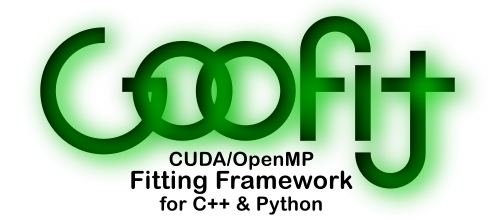
GooFit 2.1 introduces the full-featured Python bindings to GooFit. These bindings mimic the C++ usage of GooFit, including bindings for all PDFs, and also provide NumPy-centric conversions, live Jupyter notebook printing, pip install, and more. Most of the examples in C++ are provided in Python form, as well.
Several other API changes were made. Observables are now distinguished from Variables and provided as a separate class. Both these classes are now passed around by copy everywhere.1 The three and four body amplitude classes have been refactored and simplified. OpenMP is now supported via homebrew on macOS; GooFit is one of the only packages that currently can build with OpenMP on the default macOS compiler. Eigen is now available, and CLI11 has been updated to version 1.3.
GooFit 2.1 will receive continuing support while development on GooFit 2.2 presses on with a new indexing scheme for PDFs.
[Read More]